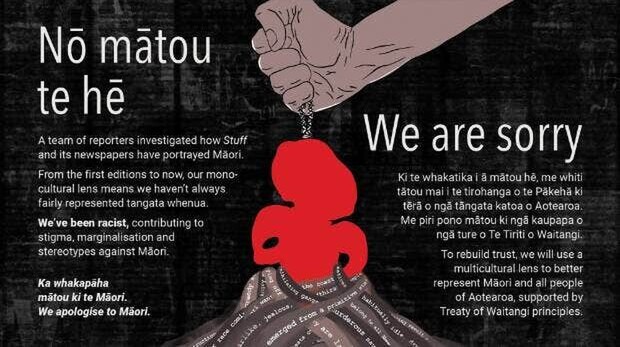but it's not an end in itself
OPINION: The late 20th century has been termed “the age of apology”, in reference to the proliferation of expressions of regret and remorse by governments, official bodies and institutions to amend historic wrongs. The recent mea culpa by Stuff for its discriminatory treatment of Māori can be viewed in this context – partly as a social speech act of contrition, and also as a promise to do things better in the future.
Apologies are emotionally powerful utterances – and these kinds of “big apologies” beg the question as to whether the claim that the personal is political is also conversely true: do they mean anything to the members of the intended recipient group?
Why are apologies important? When done properly, they are both backwards and forwards-looking – an expression of guilt or shame for past actions, as well as signalling a desire for a new relationship between the wrongdoer and the wronged.
Link to article and video: Saying sorry to Māori is a good start, but it's not an end in itself | Stuff.co.nz




